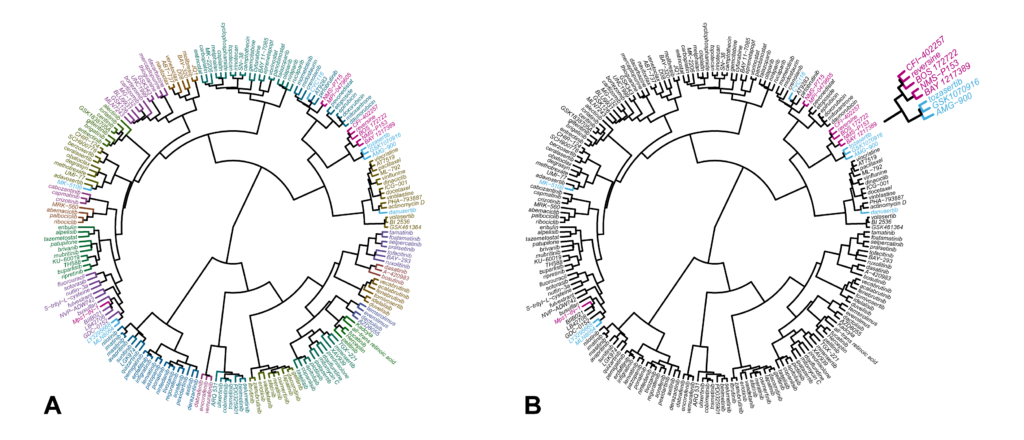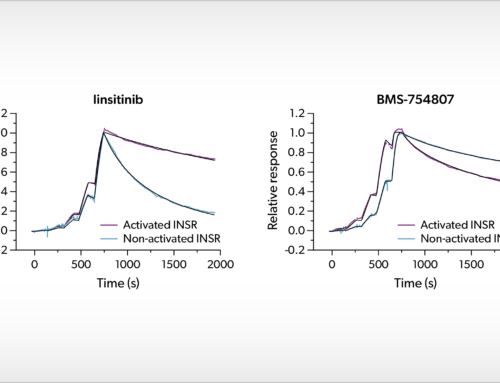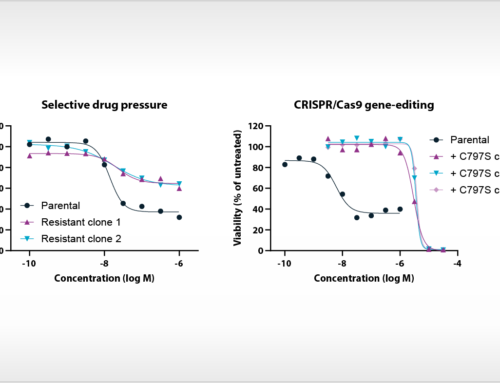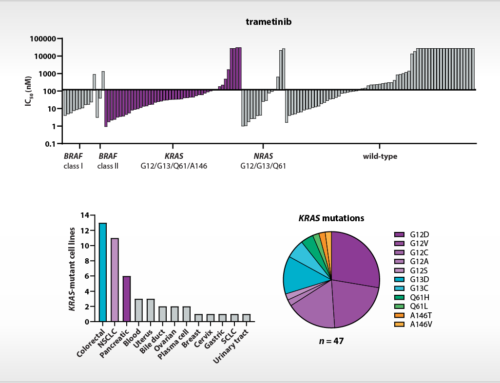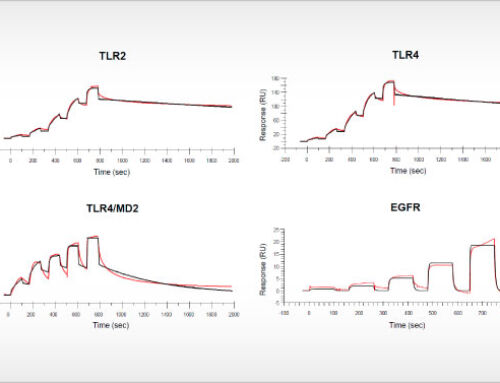Target identification of hits from a phenotypic screen
Phenotypic screens measure a desired biological effect in a disease-relevant cellular context. In contrast to target-based assays, phenotypic screens are agnostic of a defined molecular target. However, without target identification, progression of hits from phenotypic screens can be challenging since no rational approaches for chemical optimization can be followed. It is therefore advantageous to know the molecular target at an early stage, to support drug design and optimization, and to prevent time and energy being wasted on technology artifacts.
In a new case study published on our website, we describe how Oncolines® profiling can be used to identify the molecular target of a hit from a phenotypic screen. In addition, we show how our ResidenceTimer™ platform can be used to confirm the molecular target with binding assays. The case study is based on reversine, a low molecular weight compound originally identified in a phenotypic screen for molecules that can promote dedifferentiation of myoblasts into multipotent progenitor-like cells. We published the original analysis in Oncotarget in 2017. For this case study, the analysis was repeated with an expanded data set of more anticancer agents and more cell lines.
Figure. Hierarchical clustering of more than 200 reference anticancer agents based on their IC50 profile in the Oncolines cell line panel. (A) Each compound is assigned to one of 23 clusters, indicated with different colors. (B) Same clustering wheel highlighting the Mps1 inhibitors (magenta) and Aurora kinase inhibitors (blue).
Oncolines B.V. is a precision medicine services company in oncology and cancer immunotherapy. Oncolines is part of the Symeres group of companies, a group of high-quality CROs and CDMOs based in Europe and the United States.


